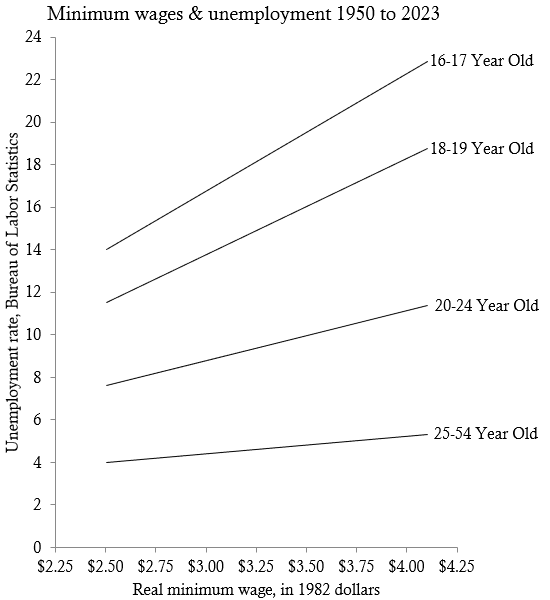Franklin Delano Roosevelt signed the Fair Labor Standards Act into law 85 years ago today. FDR established a minimum wage of $0.25 per hour. Is this policy successful? Proponents of minimum wage laws claim that legal minimum wages fight poverty; raise the incomes of lower income Americans. Critics of minimum wage laws point out that these laws increase unemployment rates, and that unemployed people earn no income at all. What does evidence show about the effects of minimum wage laws? The following graph shows lines of best fit for data on four age groups.
Minimum wage increases push teen unemployment rates from the teens up to the 20s. The effect of minimum wage increases on 20 to 24 year old workers is more modest. Minimum wage increases barely affect 25 to 54 year old workers. These results are unsurprising. Economic theory teaches us that effective minimum wages increase unemployment among the least productive least experienced parts of the workforce.
The minimum wage has backfired; it makes younger-lower income workers worse off. One solution to the problems caused by minimum wage laws is to exempt teenage workers from these laws. Older workers simply aren't affected by minimum wage laws significantly. Few 25 to 54 year old workers lose work due to minimum wage laws. Most 25 to 54 year old workers earn more than the minimum wage anyway. Of course, a teen exemption from minimum wage laws might prompt economically ignorant lawmakers to increase the legal minimum wage to levels that affect older workers. The simplest and best approach to dealing with problems caused by minimum wages might just be to repeal these laws completely and permanently.



